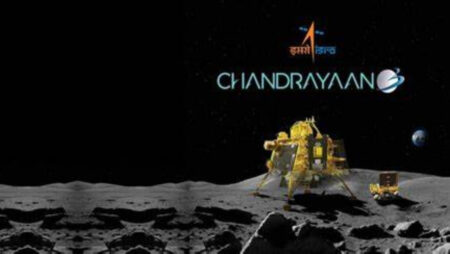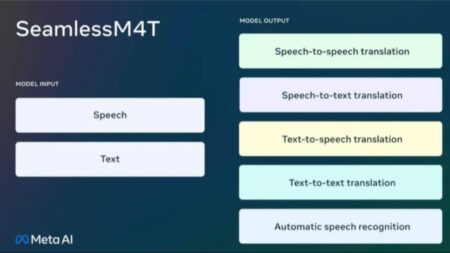Search Results: ubs (3574)
In an unfortunate convergence of man-made encroachments and the unrestrained force of nature, Punjab finds itself grappling with the most…
On Wednesday 23 August, India achieved a historic milestone by having a gentle landing of its lunar mission, Chandrayaan-3, in…
Meta’s SeamlessM4T, an AI model developed by the company has the ability to translate and transcribe up to 100 languages…
Eight of Donald Trump’s challengers fought for second place Wednesday night because the former president skipped the opening Republican presidential…
The Program of Subscription The owner of X, formerly known as Twitter, Elon musk, has stated that journalists and news…
Following Chandrayaan-3’s successful landing, Indian stock markets have received a considerable boost, with experts speculating how both the short and…
In a momentous ruling, the Supreme Court of India has once again asserted the vital principle of organizational autonomy regarding the determination of employees’ superannuation age. The case of “Central Council for Research in Ayurvedic Sciences v. Bikartan Das” has spotlighted the authority of institutions to set retirement ages, presenting a particularly intriguing context of parity with AYUSH doctors.
The essence of the dispute revolved around Bikartan Das, an employee of CCRAS, who pleaded for an extension of his retirement age to 65, citing his dedicated medical service. This plea was juxtaposed against the Union Cabinet’s decision to increase AYUSH doctors’ superannuation age. However, the court noted that this extension did not encompass autonomous bodies like CCRAS.
The crux of the interpretation hinged on the language of Clause 34 of CCRAS’s Bye-Laws, dissected meticulously by the Supreme Court. The court emphasized the term “or,” affirming the Council’s right to independently formulate superannuation policies, distinct from government norms.
Central to the verdict was the upholding of organizational autonomy in setting internal policies, particularly superannuation age. The court, while recognizing its role in curbing arbitrary decisions, underscored that organizations possess the ultimate authority in this realm. Justice Pardiwala highlighted, “The age of superannuation is always governed by statutory rules & other service conditions.”
The court also highlighted the dissimilar service conditions of Bikartan Das and AYUSH doctors. It dismissed the assumption that treating patients in diverse departments inherently merits parity in retirement age. The ruling reinforced the principle that parity should consider broader service conditions and recruitment nuances.
The ramifications of this ruling resonate widely, underscoring organizations’ autonomy in framing policies, including retirement age. It establishes a precedent for interpreting similar clauses in organizational bye-laws, possibly discouraging uniformity challenges that overlook contextual discrepancies. Moreover, the verdict fortifies the legal foundation for organizations to independently frame policies without adherence to government-established norms.
Ultimately, the Supreme Court’s judgment in the Bikartan Das case champions organizational autonomy in determining superannuation age. This landmark verdict extends beyond the specifics, encapsulating a fundamental principle that safeguards organizations’ freedom in shaping internal policies. Its echoes are destined to reverberate across industries, ushering in an era where organizations wield greater control over their core operations and identity.
Florence Pugh, cast as Jean Tatlock, a Communist leader and love interest to Cillian Murphy’s titular Oppenheimer, shared that Christopher…
No doubt today’s age is full of technological advancement and smart equipment. However, while there may be positives to this…
The elections are near, hence the freebies are here. The purse strings seem to be coming loose. No need is too needy anymore, the shower of power is the only way to go.
Contact us:
online@asianatimes.com
Copyright © 2024 Asiana Times. All Rights Reserved
















